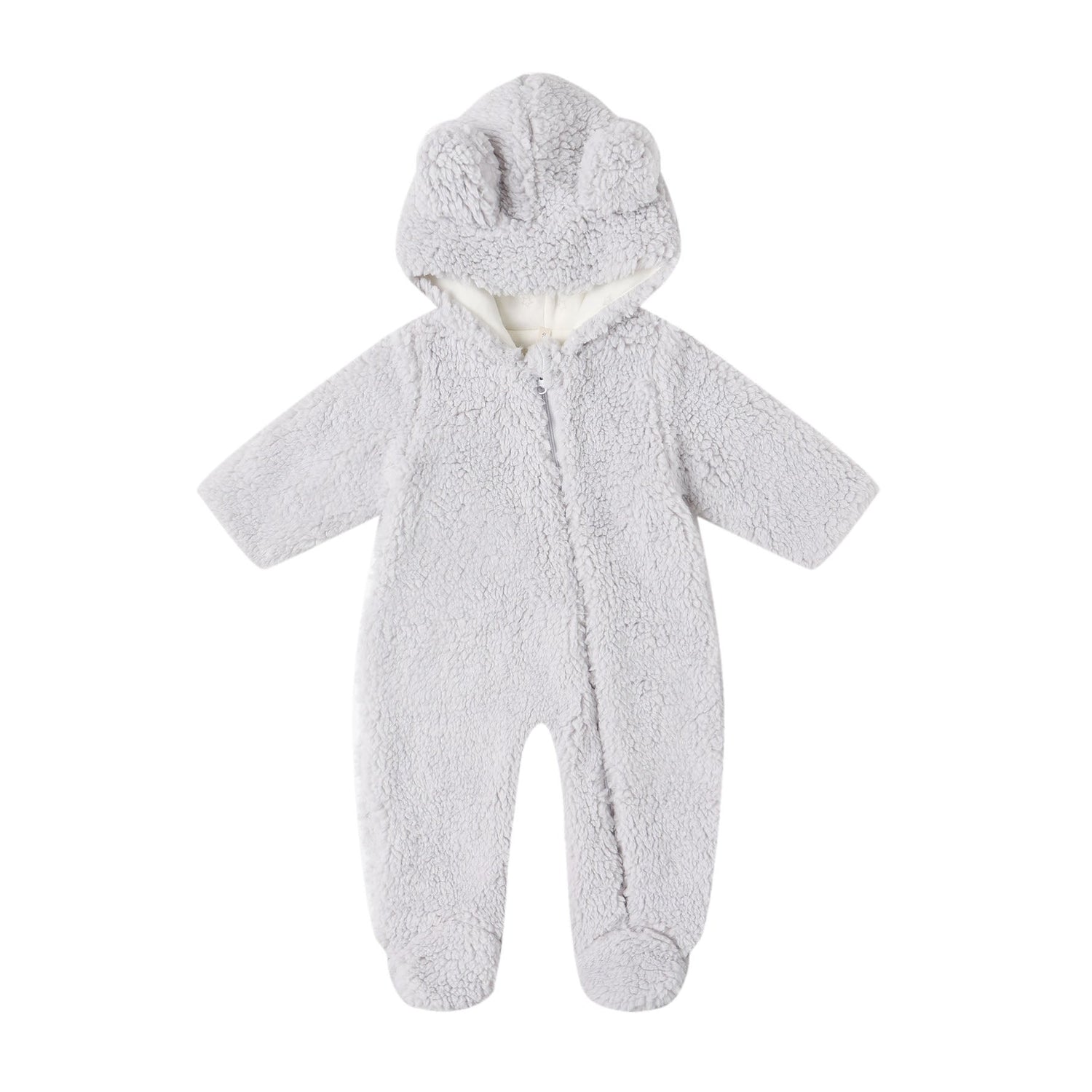I had heard of baby blues and postpartum depression, but I hadn’t realized how serious of a thing it was until my baby girl’s first pediatrician appointment. I was at an appointment for my new baby and yet they had a survey for me to take on my emotional well being. In fact, they kept having me take the survey at every appointment. Some of the survey questions included, “I have been crying more often than usual or everyday: yes or no. I can see the bright side of things as much as I always have: yes or no. I feel more overwhelmed than I normally do: yes or no.”
When I first read through the questions with my first baby I thought, "I just had a baby! Of course I’m more overwhelmed than usual." As a new mom, many of us have experienced these feelings on certain levels and if they are for a shorter amount of time, they’re referred to as baby blues. Common baby blues symptoms include mood swings, anxiety, crying spells, and difficulty sleeping even when precious sleep is possible for you. These symptoms are common and usually start a few days after delivery and last for a couple weeks afterwards. If these symptoms worsen or last longer than two weeks, you may be experiencing postpartum depression (PPD).
What Postpartum Depression Looks Like
According to the Mayo Clinic, PPD may be mistaken for baby blues at first because of the similar symptoms, but they are more severe and last longer. Some of these symptoms include:
- Depressed mood or severe mood swings
- Crying too much (too much would include it inhibiting your ability to care for your baby or handle daily tasks)
- Difficulty bonding with your baby
- Withdrawing from family and friends
- Loss of appetite or eating more than usual
- Inability to sleep or sleeping too much
- Overwhelming tiredness or loss of energy
- Less interest and pleasure in activities you used to enjoy
- Intense irritability and anger
- Fear that you’re not a good mother
- Hopelessness
- Feelings of worthlessness, shame, guilt, or inadequacy
- Reduced ability to think clearly, concentrate, or make decisions
- Restlessness
- Severe anxiety and panic attacks
- Thoughts of harming yourself or your baby
- Recurring thoughts of death or suicide
*Something interesting is that these symptoms can occur in the other parent as well. Mayo Clinic explains that studies have shown that new fathers can experience postpartum depression as well, so make sure you are looking after dad as well.*

Why do Women Get Postpartum Depression?
Any new mom can get postpartum depression, and there is not one reason for women developing it after birth. Three main reasons for women getting PPD are their genetics, physical changes, and other emotional issues. The Mayo Clinic explains that a family history of postpartum depression, the extreme drop in estrogen and progesterone hormones, and the overwhelm/body changes/newborn anxiety/new identity crisis all add to the reasons women develop this certain kind of depression. Some risk factors that increase your chances of forming it include:
- A history of depression
- You have bipolar disorder
- You have had PPD before
- You have had family members with depression or other mood disorders
- You’ve experienced stressful events during the past year (difficult pregnancy, illness, job loss etc.)
- Your baby has health problems or other special needs
- You have twins, triplets, or other multiple births
- You have difficulty breastfeeding
- You’re having problems in your relationship with your partner
- You have a weak support system
- You have financial problems
- The pregnancy was unplanned or unwanted

How to Treat Postpartum Depression
So if you or a loved one have noticed you have been carrying the weight of postpartum depression symptoms, the first thing you should do is talk to a healthcare professional. If left untreated, complications with bonding or other family issues can occur. If severe enough, it could develop into postpartum psychosis. The three main treatments for postpartum depression are therapy, antidepressants, and other medicines.
Therapy is amazing. I would recommend therapy to just about anyone whether you have postpartum depression or not. It feels good to talk with an unbiased third party who can help you find ways to cope with what is going on. Couples therapy could also be very healing for both partners navigating this new role as a parent.
Antidepressants are also amazing. There are many negative stigmas still attached to taking medicines for our mental health when the benefits to taking them are amazing. (Believe me, I have edited many of my husband’s essays on antidepressants for nursing school… studies show they truly are helpful and they have improved immensely over the years.)
The other medicine is referring to prescriptions to help with other symptoms that a new mom may be experiencing such as insomnia.

I just want to end by saying, if you have these symptoms you are not an insufficient mother. There is nothing wrong with you. I feel like I am a huge advocate when it comes to mental health and am telling everyone how great therapy is and how you should never be ashamed to get help when you need it, and yet when my doctor looked at my survey with my second baby and said it looks like you may have some anxiety or PPD, I said, "No way! I’m fine."
I thought I couldn't possible have it--I didn’t with my first. Newborns are just hard. Of course I’m exhausted. Of course I’m overwhelmed. Of course I’m irritable and mad at my toddler all the time. This is a new role and I get no sleep. She offered me medicine and I turned it down.
On my drive home I thought, "What am I doing?! This is so much worse than with my first baby. If any of my girlfriends were feeling this way, I would be saying, 'Girl, you should get those meds. It will make you feel better!! No shame attached.'"
So the next day I called my doctor and said, "You know what? I actually do think I need some extra help. Could I get that prescription?" The nurse was very kind and helpful, I got the anti-anxiety meds, and I am not exaggerating when I say my whole outlook changed. It truly was like a fog was lifted and I felt lighter. I was kinder, more patient, I didn’t think everyone was mad at me all the time, and I didn’t feel like I was inadequate every single solitary second.
Please don’t be afraid to receive help and ask for help when you need it. And please if you ever have thoughts of harming yourself or your baby, immediately seek help from your partner or loved ones, call 911, get help from your health car provider, or text the 988 US suicide hotline number available 24 hours a day.
The days are long and the nights can seem longer, but it will pass. It will get easier, and you don’t need to feel guilty about not missing the newborn stage. Hang in there, and remember that you are not alone.
For more info on being a new mom go to babycubby.com.







